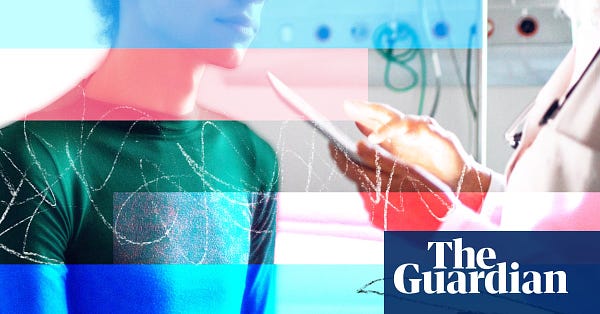
A potential test case involving an Australian gender clinic has settled with an expert witness abruptly withdrawing a recommendation of puberty blockers for a child of primary school age.
The Family Court trial featured several expert witnesses who informed the judge of the increasing concern about the safety of puberty blocker drugs and the European shift away from medicalised gender change for minors, according to multiple sources.
After 10 days of proceedings in a closed courtroom, the dispute between the child’s parents was settled earlier this month, with an injunction preventing any transgender hormonal treatments until the child is 16 years old. The injunction also prohibits any change of the child’s name or gender in official records before age 16.
The litigation is significant not only because the gender clinic capitulated and withdrew its recommendation of puberty blockers, but also because it is believed to be the first instance where an Australian judge has had the benefit of multiple expert arguments against the case for trans medicalisation.
Almost all previous Family Court cases involving treatment for minors diagnosed with the distressing condition of gender dysphoria have been one-sided affairs with no party putting to the judge reasons not to go ahead with puberty blockers, cross-sex hormones or surgery, such as a double mastectomy.
If parents or doctors disagree about trans medical interventions, the Family Court must decide what is best for the child.
Bill Kordos, a seasoned litigator with the national law firm AFL Kordos, called for a public inquiry into gender clinic medical interventions.
“I can't discuss any aspect of this case or identify anyone [but] it is my view, being experienced at high-level litigation in these matters, that there needs to be a public inquiry as to how children are treated and diagnosed in this sphere,” he told GCN.
“In fact, I would go as far as to say that in some cases, [this trans medical treatment] would be tantamount to child abuse.”
Mr Kordos said it appeared that systematic reviews of the medical literature overseas — showing the evidence base for “gender-affirming” hormonal and surgical treatments to be weak and uncertain — had not been factored into medical practice in Australia.
“And I think that's affecting the decisions doctors [here] are making about how to deal with both the causes and the treatment of gender dysphoria.”
Details that might identify the vulnerable children in these gender dysphoria cases cannot be published by law.
In the litigation settled earlier this month, the courtroom was effectively closed to the public, and a suppression order kept the dispute between the child’s parents out of the official list of family law matters.
A former Federal Circuit Court judge, Stuart Lindsay, said the Family Law Act’s non-publication provision, s121, in its present form stifled the important public debate about whether youth gender medicine helps or harms minors.
“There is no good reason why experts who give evidence orally or via affidavits cannot be identified and their evidence and views made the subject of academic or general scrutiny, if nothing in their identification enables identification of a party or child,” Mr Lindsay told GCN.
“We need to be able to access full information about what an expert has said and what a court has said about their testimony — more old-fashioned open justice and less Kafka-in-the-courtroom is required.”
Comment: The Guardian in the U.K. finally discovers the gender clinic story


‘No side-effects’
In the 2013 case re Jamie, which freed up access to puberty blockers, the Family Court noted evidence claiming this treatment was “fully reversible, without long-term effects on fertility.”
An expert witness — known to the public only as the “endocrinologist Dr G” — told the court in re Jamie that puberty blockers had “no side-effects.”
There was no way for worried parents, other physicians or journalists to ask Dr G about the evidence for these claims.
In the Family Court proceedings that settled unexpectedly this month, expert witnesses who cannot be identified filed affidavits, and some were cross-examined.
The parent who was sceptical about puberty blockers relied on expert evidence covering —
the international scientific debate about youth gender medicine, especially since the problems at the world’s largest gender service, the London-based Tavistock clinic
whether puberty blockers are in fact safe and fully reversible
the impact of “gender-affirming” treatment on fertility and adult sexual function
whether these treatments are effective, as claimed, in improving mental health and wellbeing or reducing risk of self-harm
whether children can give fully-informed consent to these treatments which may have very long-term adverse consequences, including for fertility and sexual function
the quality of assessment by gender clinicians


Many people would agree, Vincent. The tricky group is 18-25 or so when the brain is matured (mine took longer).
Correct - “gender medicine” is sometimes child abuse.